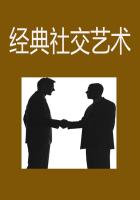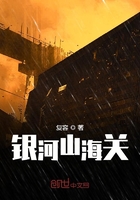I think it was about half-past three when I saw the lights of the frontier post. The air seemed milder than in the valleys, and there was a soft scurry of snow on my right cheek. A couple of sleepy Swiss sentries with their rifles in their hands stumbled out as I drew up.
They took my pass into the hut and gave me an anxious quarter of an hour while they examined it. The performance was repeated fifty yards on at the Italian post, where to my alarm the sentries were inclined to conversation. I played the part of the sulky servant, answering in monosyllables and pretending to immense stupidity.
'You are only just in time, friend,' said one in German. 'The weather grows bad and soon the pass will close. Ugh, it is as cold as last winter on the Tonale. You remember, Giuseppe?'
But in the end they let me move on. For a little I felt my way gingerly, for on the summit the road had many twists and the snow was confusing to the eyes. Presently came a sharp drop and I let the Daimler go. It grew colder, and I shivered a little; the snow became a wet white fog around the glowing arc of the headlights; and always the road fell, now in long curves, now in steep short dips, till I was aware of a glen opening towards the south. From long living in the wilds I have a kind of sense for landscape without the testimony of the eyes, and I knew where the ravine narrowed or widened though it was black darkness.
In spite of my restlessness I had to go slowly, for after the first rush downhill I realized that, unless I was careful, I might wreck the car and spoil everything. The surface of the road on the southern slope of the mountains was a thousand per cent worse than that on the other. I skidded and side-slipped, and once grazed the edge of the gorge. It was far more maddening than the climb up, for then it had been a straight-forward grind with the Daimler doing its utmost, whereas now I had to hold her back because of my own lack of skill. I reckon that time crawling down from the summit of the Staub as some of the weariest hours I ever spent.
Quite suddenly I ran out of the ill weather into a different climate. The sky was clear above me, and I saw that dawn was very near. The first pinewoods were beginning, and at last came a straight slope where I could let the car out. I began to recover my spirits, which had been very dashed, and to reckon the distance Ihad still to travel ... And then, without warning, a new world sprang up around me. Out of the blue dusk white shapes rose like ghosts, peaks and needles and domes of ice, their bases fading mistily into shadow, but the tops kindling till they glowed like jewels. I had never seen such a sight, and the wonder of it for a moment drove anxiety from my heart. More, it gave me an earnest of victory. I was in clear air once more, and surely in this diamond ether the foul things which loved the dark must be worsted ...
And then I saw, a mile ahead, the little square red-roofed building which I knew to be the inn of Santa Chiara.
It was here that misfortune met me. I had grown careless now, and looked rather at the house than the road. At one point the hillside had slipped down - it must have been recent, for the road was well kept - and I did not notice the landslide till I was on it. Islewed to the right, took too wide a curve, and before I knew the car was over the far edge. I slapped on the brakes, but to avoid turning turtle I had to leave the road altogether. I slithered down a steep bank into a meadow, where for my sins I ran into a fallen tree trunk with a jar that shook me out of my seat and nearly broke my arm. Before I examined the car I knew what had happened. The front axle was bent, and the off front wheel badly buckled.
I had not time to curse my stupidity. I clambered back to the road and set off running down it at my best speed. I was mortally stiff, for Ivery's rack was not good for the joints, but I realized it only as a drag on my pace, not as an affliction in itself. My whole mind was set on the house before me and what might be happening there.
There was a man at the door of the inn, who, when he caught sight of my figure, began to move to meet me. I saw that it was Launcelot Wake, and the sight gave me hope.
But his face frightened me. It was drawn and haggard like one who never sleeps, and his eyes were hot coals.
'Hannay,' he cried, 'for God's sake what does it mean?'
'Where is Mary?' I gasped, and I remember I clutched at a lapel of his coat.
He pulled me to the low stone wall by the roadside.
'I don't know,' he said hoarsely. 'We got your orders to come here this morning. We were at Chiavagno, where Blenkiron told us to wait. But last night Mary disappeared ... I found she had hired a carriage and come on ahead. I followed at once, and reached here an hour ago to find her gone ... The woman who keeps the place is away and there are only two old servants left. They tell me that Mary came here late, and that very early in the morning a closed car came over the Staub with a man in it. They say he asked to see the young lady, and that they talked together for some time, and that then she went off with him in the car down the valley ... I must have passed it on my way up ... There's been some black devilment that I can't follow. Who was the man? Who was the man?'
He looked as if he wanted to throttle me.
'I can tell you that,' I said. 'It was Ivery.'
He stared for a second as if he didn't understand. Then he leaped to his feet and cursed like a trooper. 'You've botched it, as I knew you would. I knew no good would come of your infernal subtleties.'
And he consigned me and Blenkiron and the British army and Ivery and everybody else to the devil.
I was past being angry. 'Sit down, man,' I said, 'and listen to me.' I told him of what had happened at the Pink Chalet. He heard me out with his head in his hands. The thing was too bad for cursing.
'The Underground Railway!' he groaned. 'The thought of it drives me mad. Why are you so calm, Hannay? She's in the hands of the cleverest devil in the world, and you take it quietly. You should be a raving lunatic.'















